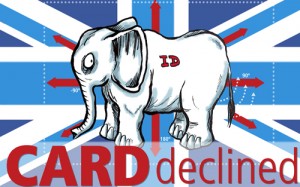It’s great, unintentional timing to have an article about smart meters published in the middle of a heat wave. One of the justifications for putting smart meters in every home is that they manage demand, both by charging variable rates depending on time of day and also by turning down some appliances when demand is high. Doing this can dampen spikes in demand, stopping brownouts (a reduction in a local grid’s voltage) of the kind that have hit parts of the US during heatwaves.
The thing is, the main reason for US brownouts is the use of air conditioning. And as many people in Britain will be aware after the last fortnight, we don’t generally have air conditioning, at least not in homes (and although it has not felt like it during the last fortnight, we don’t really need it given our usual climate). This, I write in a piece on the subject for The Register published last Friday, is among the reasons why the UK government plan to put a smart meter in pretty much every home by 2020 may be flawed:
Firstly, many houses use gas for their big adjustable power needs, such as heating and cooking. Secondly, Britain’s clement climate keeps domestic power needs relatively low, whereas Norway (say) uses four times the electricity as Britain per person through heating, and Texas using five times due to air-conditioning. Continue reading “For The Register: is the government smart meters plan clever or dumb?”


